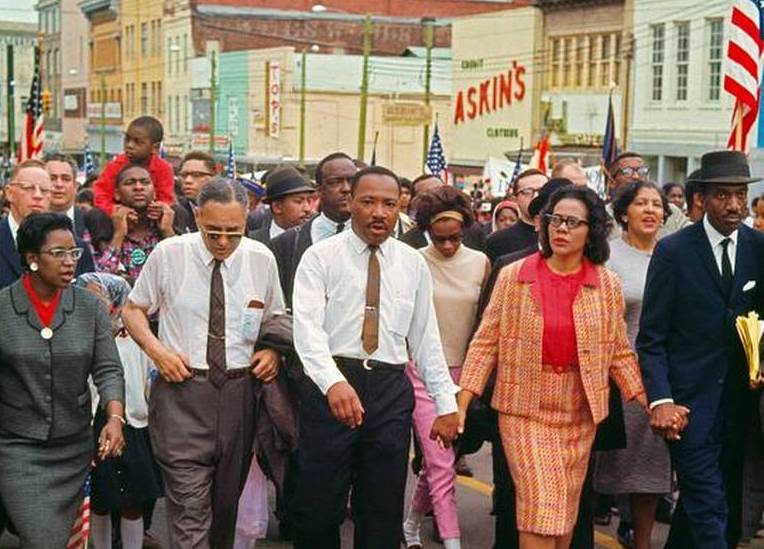This morning I woke up reflecting on all that has happened since this day in 2020. I was struck by how Dr. Martin Luther King Jr. Day is different this year, in ways that are especially relevant to honoring his memory.
In the past year, we’ve experienced a global pandemic that has cost the lives of too many and is infecting exponentially more people daily—disproportionately wreaking havoc on the lives and livelihoods of People of Color, and Black people especially. Revolutionary racial justice organizing centering Black lives, with an increasing number of people denouncing racism and white supremacy, nationally and around the globe. Over 100 members of Congress voting to disenfranchise millions of American voices. An insurrection by white supremacists at our nation’s Capitol. The final year of a white supremacist as our president.
Every year, MLK Day gives us space to reflect, to grieve, and to look forward with a renewed sense of hope and commitment. And this year, that space feels especially needed.
We know that we cannot collectively move forward as a nation without acknowledging the horrific events that occurred at the Capitol that were fueled by white supremacy. We support the efforts of our legislators to impeach Trump for his role in inciting the insurrection, and other efforts to hold people who participated and organized it accountable.
But this is just the beginning of the work that we will need to do together to acknowledge, grieve, and repair the legacy of this administration.
Despite everything that has happened in the past year—and in some ways because of it—I am still finding places from which to draw hope. Hope that is grounded in the fundamental belief that people and systems can change.
But hope alone is not enough. My hope comes from the belief that our movements for social and racial justice will bring that change, and I think Dr. King’s did as well. None of this change is going to happen on its own, and Dr. Martin Luther King Jr.’s life was a testament to that. Which is why today is not just a day to reflect, it is a day of service—a day about taking action for our communities. A day to recommit to centering Black liberation in all of our efforts, so that the change we are building toward is a world where everyone can live, exist, and thrive.
This day of service may look different in the midst of COVID-19, but I hope you join me in taking time to reflect on the life, work, and movements led by Dr. Martin Luther King Jr. by reading his full speeches or his Letter from a Birmingham Jail, reflecting on the historical context of all that was happening in that moment. I also hope you’ll take time to learn about and support The Movement for Black Lives as one incredible example of a contemporary manifestation of the civil rights movement.
Today we honor Dr. Martin Luther King Jr.’s life and legacy, and we also honor the labor and efforts of all of the people involved in the civil rights movement, past and present. Our work is possible because of generations of leaders and decades of movements and organizing, and we honor that legacy through our continued work and shared commitment to creating the future Dr. King knew was possible.
Katie Carter is Pride Foundation CEO.
